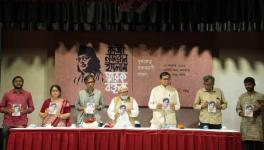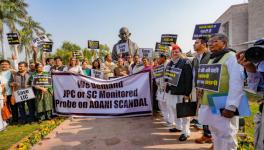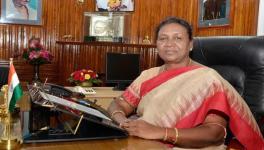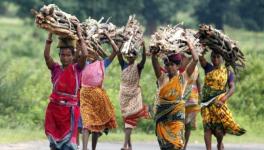Under-Representation of Muslims Continues in 17th Lok Sabha
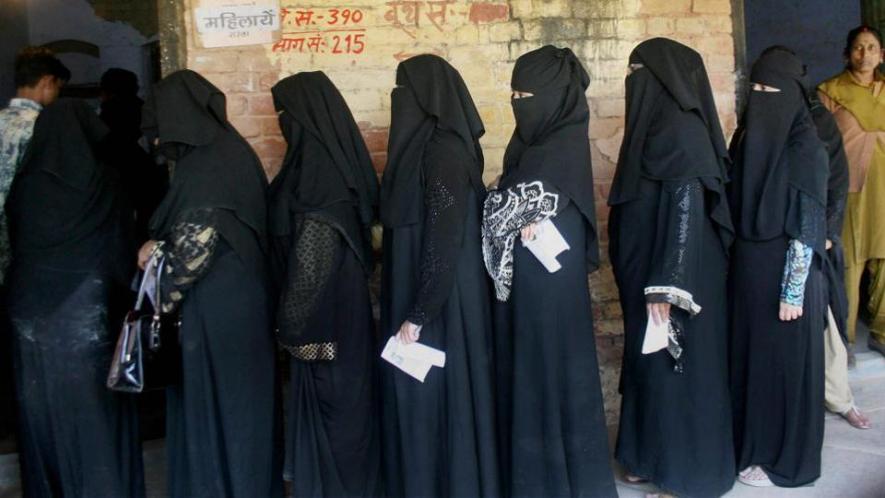
Image Courtesy: Hindustan Times
With the conclusion of counting of votes late Thursday evening, one distinct feature of the previous general elections continue to prevail in the newly elected Lok Sabha- under representation of Muslims in comparison with their population. Numerically, Muslims constitute 14% of the country’s population. However, their representation remains abysmally low at 4.7% with 26 MPs elected to the current Lok Sabha.
The highest number of Muslim legislators come from Uttar Pradesh and West Bengal which sent six MPs each to the lower house of the Parliament followed by Kerala, Jammu and Kashmir, Tamil Nadu, Maharashtra, Telangana, Punjab and Lakshdweep. Despite emerging as the largest party, Bharatiya Janata Party (BJP), second time in a row, does not have a single Muslim MP in its long list of legislators. The party had given tickets to only seven Muslims out of 437 candidates in the entire country.
In Uttar Pradesh, Bahujan Samaj Party and Samajwadi Party has three Muslim MPs each to represent them. BSP’s Kunwar Danish Ali (Amroha), Afzal Ansari (Ghazipur), Haji Fazlur Rehman (Saharanpur), and the SP’s S T Hassan (Moradabad), Shafique Rehman Barq (Sambhal), and Azam Khan (Rampur) were declared winners.
In West Bengal, Nusrat Jahan Ruhi (Basirhat), Abu Taher Khan (Murshidabad), Sajda Ahmed (Uluberia) and Khalil Ur Rahman (Jangipur) were elected on the tickets of Trinamool Congress whereas Abu Hasem Khan Chowdhury (Maldaha Dakshin) won on Congress tickets. Jammu and Kashmir has sent three MPs -Hasnain Masoodi (Anantnag), Mohammad Akbar Lone (Baramulla) and Farooq Abdullah (Srinagar). All three were fielded by the National Conference.
Also read: Modi 2.0: Majoritarianism Normalised?
All India Majlis-e-Ittehadul Muslimeen candidates Asaduddin Owaisi and Imtiaz Jaleel Syed were elected from Hyderabad and Aurangabad (Maharashtra), respectively. While Owiasi was elected fourth time in a row, Syed is a first time MP. Kerala also sent three Muslim MPs- two from Indian Union Muslim League and one from Communist Party of India (Marxist). IUML’s E T Mohammed Basheer (Ponnani) and P K Kunhalikutty (Malappuram) have been elected, whereas K Navaskani has been elected from Ramanathapuram in Tamil Nadu, where IUML is part of the Dravida Munnetra Kazhagam-led alliance.
Experts argue that consistent lower number of Muslims getting elected can be attributed to several factors, growing reluctance of political parties to allocate tickets being the prime reason. The tendency can be seen clearly through data from previous years. In 2009, Congress had given 29 tickets to Muslims out of which only 10 were elected. The ticket allocation remained stagnant in these elections too. While it gave tickets to 31 Muslims out of 464 candidates nationally in 2014, it fielded 32 Muslims out 464 candidates this year.
The trend is also visible in ticket allocation of regional parties in North and South India alike. In Uttar Pradesh, where Muslims constitute 19.3% of total population, BSP-SP alliance gave 10 tickets to Muslims out of 78 candidates. In 2009 and 2014, BSP had fielded 14 and 19 Muslim candidates, respectively. Similarly, SP too had given tickets to 11 in 2009 and 14 Muslims in 2014. In the neighbouring state of Bihar, Rashtriya Janta Dal fielded four Muslim candidates. Lok Jan Shakti and Janata Dal United fielded one candidate each. Other players like Telugu Desam Party, Telangana Rashtra Samithi, Janata Dal (Secular) and Biju Janata Dal did not bother to give even a single ticket to Muslims this time.
Also read: 'This is a Landslide. India is Now a Majoritarian Democracy'
Talking about the dangers of under representation of religious minorities, senior journalist Abhay Dubey told NewsClick that it could lead to disappointment among the members of Muslim community, which could lead into any direction. He said, “Giving jobs and means of livelihood is not the only thing that institutions should provide to its minorities in a democracy. Adequate representation is also key to make them realise that they are citizens of this country. Unfortunately, Congress has been towing the agenda of Bharatiya Janata Party which wants to neutralise their political presence. We are witnessing that Muslims are getting defeated in seats where they constitute 20% of the population. So, it is the responsibility of political parties to build a consensus which facilitate the interests of the community or else it will only lead to further alienation."
Get the latest reports & analysis with people's perspective on Protests, movements & deep analytical videos, discussions of the current affairs in your Telegram app. Subscribe to NewsClick's Telegram channel & get Real-Time updates on stories, as they get published on our website.










